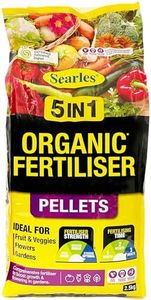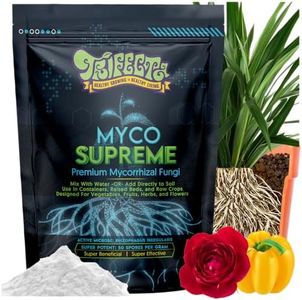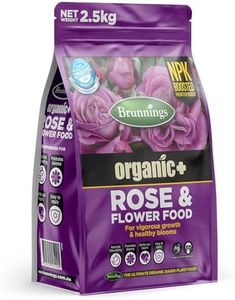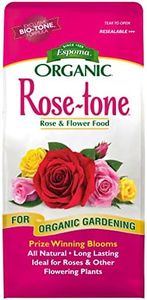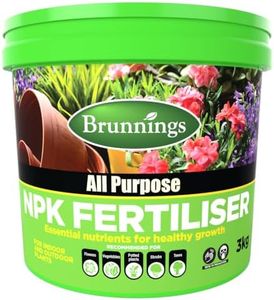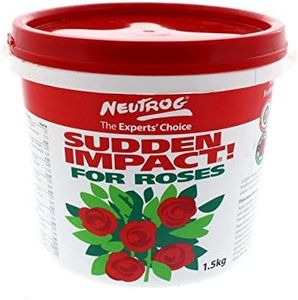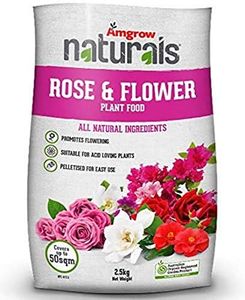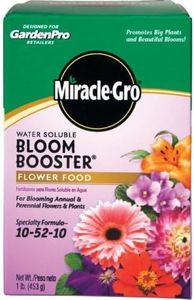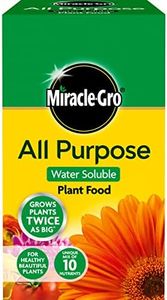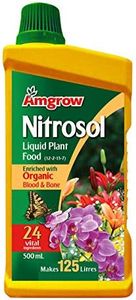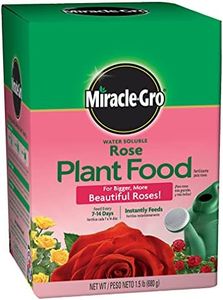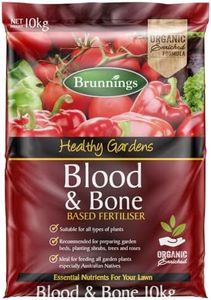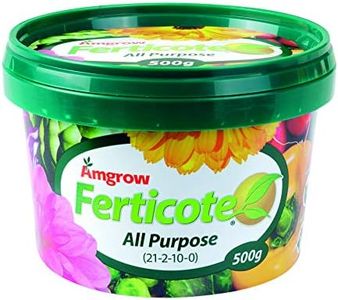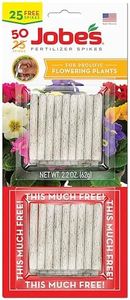We Use CookiesWe use cookies to enhance the security, performance,
functionality and for analytical and promotional activities. By continuing to browse this site you
are agreeing to our privacy policy
10 Best Rose Fertilizers
From leading brands and best sellers available on the web.By clicking on a link to a third party's website, log data is shared with that third party.
Buying Guide for the Best Rose Fertilizers
Choosing the right fertilizer for your roses can make a big difference in how healthy and beautiful your blooms are. Understanding how different fertilizers work, what your roses need at different times of year, and what your soil is like will help you pick the best product. Instead of just grabbing the first fertilizer you see, it's good to know what each main specification means and how to match it with your garden's conditions and your goals for your plants.NPK RatioThe NPK ratio stands for Nitrogen (N), Phosphorus (P), and Potassium (K), which are the three main nutrients plants need. This ratio is listed as three numbers on fertilizer packages, like 10-10-10. Nitrogen is for leaf growth, phosphorus is for roots and blooms, and potassium helps overall strength and disease resistance. Higher nitrogen is good for young or leafy growth, more phosphorus is better for flowering, and extra potassium helps toughen up plants. If you want more blooms, look for a slightly higher middle number; for strong bushes, balanced ratios work best. Match the NPK values with your goals and the current stage of your rose's growth.
Fertilizer Type (Granular, Liquid, Slow-Release, Organic)Fertilizers come in different forms: granular, liquid, slow-release pellets, and organic. Granular types are dry and can be mixed into the soil, making them easy to use for regular feeding. Liquid fertilizers give a quick boost and are great if you want fast results or need to correct a deficiency. Slow-release fertilizers feed over time, meaning less frequent applications, which is good if you want a low-maintenance option. Organic fertilizers use natural materials and improve soil health, but might act more slowly. Pick the type based on how much time you want to spend feeding and how quickly you want results.
MicronutrientsBesides the main NPK nutrients, roses also need small amounts of other elements like magnesium, iron, or manganese, commonly called micronutrients. These help prevent leaf yellowing and other common rose problems. Some fertilizers include these extras, which is helpful if your roses have had nutrient problems in the past. If your roses always look healthy, you might not need extra micronutrients; but if you see yellow leaves or poor growth, picking a fertilizer with added micronutrients is a smart move.
Application FrequencyHow often you need to apply the fertilizer is an important spec. Some fertilizers are designed to be used every few weeks, while others may only need to be applied a couple of times per season. Frequent application might suit gardeners who enjoy tending their plants regularly and want more control, while less frequent options are better for those with limited time or larger gardens. Choose a frequency that realistically fits your lifestyle and maintenance habits.
Soil CompatibilityNot all fertilizers suit every soil type. If your soil is sandy, clay-heavy, acidic, or alkaline, you may need a specific kind. Fertilizers that are labeled as suitable for 'all soils' are a safe option, but for problem soils, or if you know your soil's pH, picking a fertilizer that matches those needs will give better results. If you're unsure, a soil test can help guide you.
